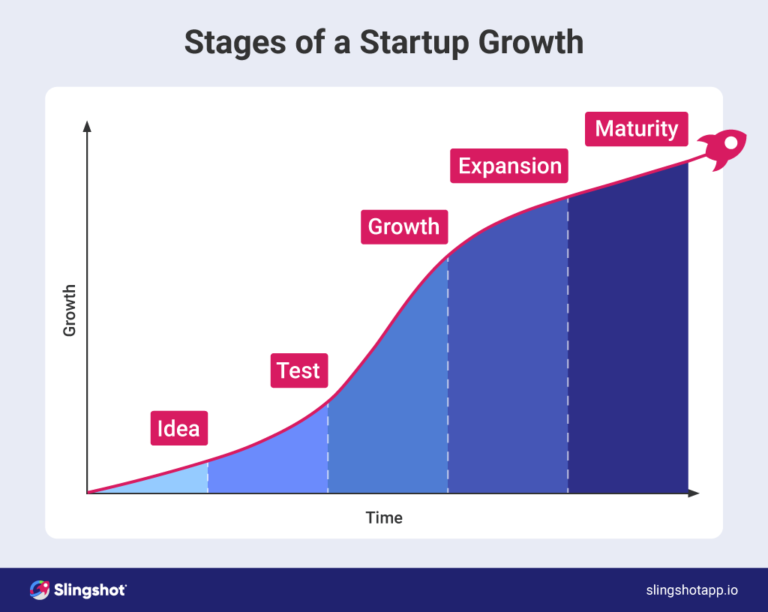
Key Points of Startup Growth: Navigating the Path to Success
Key Points of Startup Growth: Navigating the Path to Success https://theraise.eu/wp-content/uploads/2023/09/slingshot-Stages-of-a-Startup-Growth-768x612-1.png 768 612 RAISE fosters startup growth and scale-up within and across Europe RAISE fosters startup growth and scale-up within and across Europe https://theraise.eu/wp-content/uploads/2023/09/slingshot-Stages-of-a-Startup-Growth-768x612-1.pngStarting a business is just the beginning. For startups, sustained growth is the ultimate goal. This journey is marked by key milestones and strategies that can mean the difference between thriving and floundering. In this article, we’ll delve into the crucial points that define the trajectory of startup growth, providing invaluable insights for entrepreneurs and innovators.
1. Product-Market Fit
The cornerstone of any successful startup is a product or service that resonates with its target market. Achieving product-market fit means that your offering fulfills a real need or solves a genuine problem for your customers. It’s essential to listen to feedback, iterate, and refine your product until it hits the sweet spot.
2. Customer Acquisition and Retention
Acquiring customers is just the first step; retaining them is the real challenge. Building a loyal customer base involves delivering exceptional value, excellent customer service, and continuous engagement. Utilize data analytics to understand customer behavior and preferences, allowing you to tailor your offerings to their needs.
3. Scalable Business Model
A scalable business model allows a startup to grow without proportionally increasing its costs. This involves finding efficient ways to serve a larger customer base, whether through automation, technology, or streamlined processes. Scalability ensures that your business can handle increased demand without sacrificing profitability.
4. Funding and Financial Management
Securing adequate funding is crucial for growth. This can come from various sources, including angel investors, venture capital, crowdfunding, or bootstrapping. Additionally, maintaining rigorous financial management practices ensures that resources are allocated wisely, and the business remains financially sustainable.
5. Talent Acquisition and Team Building
A startup is only as good as its team. Hiring the right people with complementary skills and a shared vision is paramount. Foster a culture of collaboration, innovation, and adaptability. As the company grows, ensure that the team remains aligned with the startup’s mission and values.
6. Market Expansion and Diversification
Expanding into new markets or diversifying your product offerings can unlock significant growth opportunities. Thorough market research, understanding local nuances, and adapting your strategy accordingly are essential for successful expansion.
7. Embracing Technology and Innovation
Innovative use of technology can provide a competitive edge. Staying abreast of the latest trends and adopting relevant technologies can streamline operations, enhance customer experience, and open up new avenues for growth.
8. Adaptability and Agility
The business landscape is dynamic, especially for startups. Being able to pivot, adapt to market changes, and seize new opportunities is critical for long-term success. Flexibility allows startups to navigate challenges and stay relevant in evolving industries.
The path to startup success is a dynamic and multifaceted journey. Each of these key points represents a crucial aspect of growth, and they are interconnected. Navigating the startup ecosystem requires a balance of strategic planning, continuous learning, and the ability to seize opportunities as they arise. By focusing on these essential elements, startups can position themselves for sustainable growth and long-term success in a competitive marketplace.
Photo via Slingshot
- Posted In:
- Startup News




